Struggling with a stubborn large waistline can be frustrating, especially when your favorite outfit no longer fits the way it used to. In addition to the cosmetic concerns, excess belly fat can pose significant health risks as you grow older. That’s why we consulted with Dr. Mike Bohl, MD, MPH, ALM to uncover the top exercise tips for achieving a smaller waist at the age of 50.
According to Dr. Bohl, “[Your] main focus should be on exercises that both burn calories while also strengthening the muscles and the bones. These include aerobic exercise and resistance training.” Needless to say, don’t get rid of that outfit yet! Gear up for these expert-backed tips to help you seriously slim down your waistline.
Let’s start by understanding what causes the waistline to expand as you age. Dr. Bohl tells us that as you age, your muscles weaken, and fat accumulates in your belly. You can even lose height in your spine at this stage, which condenses the abdomen, thereby increasing the inches around your waist. So, if it’s been difficult to achieve a trim waistline at 50, you’ll now understand why.
Let’s explore the best exercise secrets for a smaller waist at 50, according to Dr. Bohl.
Resistance training will torch major calories.
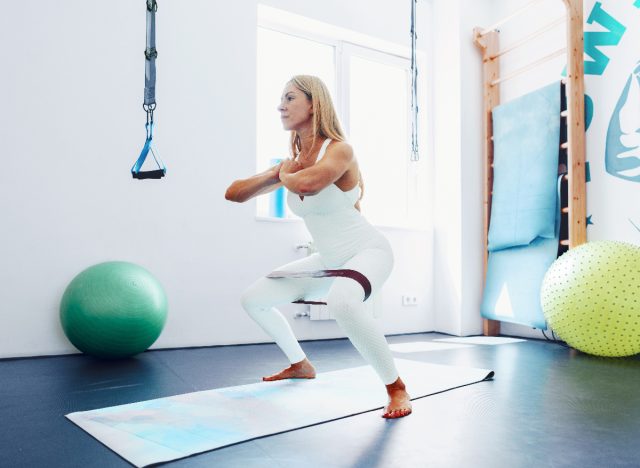

It’s time to learn how you can be proactive in fixing this weight-loss struggle. Dr. Bohl explains, “One important kind of exercise to do is resistance training, like weightlifting. Resistance training burns a large [number] of calories, which can help keep fat off of the body.”
Most people are under the misconception you lose fat in the one particular area you’re targeting. However, if you spend time performing arm workouts, you won’t lose fat in just your arms. Resistance training on any body part will result in overall fat loss. The good news is that you can perform the weightlifting exercises you enjoy most to help keep your belly in check.
Core exercises will help maintain and build a strong abdomen.
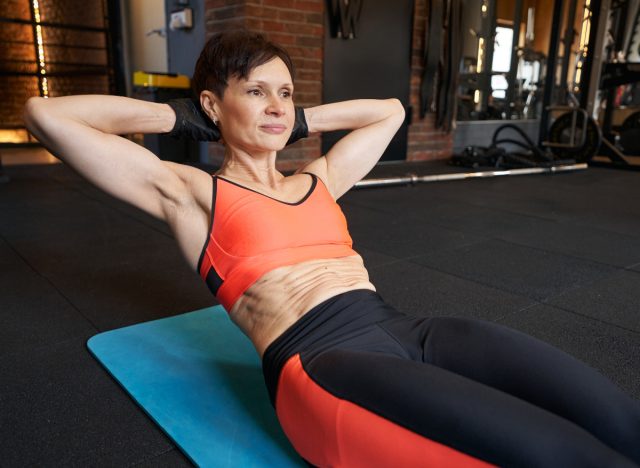

The next secret to achieving a smaller waistline is to perform core exercises. These will maintain and build muscle strength in your abdomen and keep your belly from expanding. Some examples of effective core exercises include mountain climbers, side planks, Russian twists, hollow holds, BOSU ball planks, and rowing machine work.
Of course, core exercises should be done in conjunction with your strength training routine. It’s a great opportunity to switch things up throughout your week!
Posture training is beneficial to make your belly appear smaller.
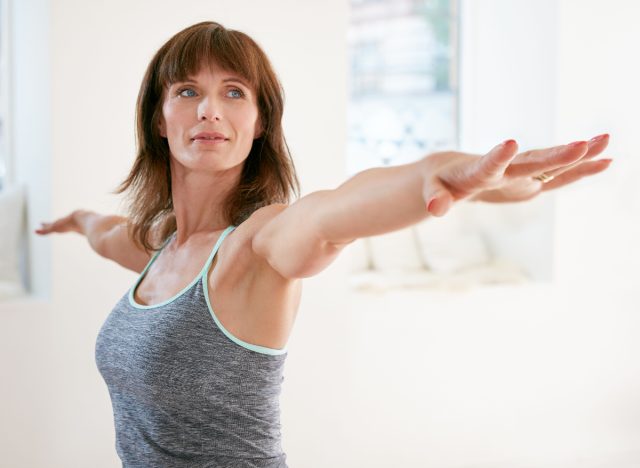

Posture training is extremely beneficial for making your belly appear smaller. Your abdomen’s major function is to hold your body up straight. Poor posture can actually make these muscles inactive, making your belly look bigger.
Dr. Bohl tells us, “Sitting up straight and keeping the shoulders back expands the chest and abdomen area, creating more space for the internal organs.”
Low-impact aerobic exercise burns calories and helps you maintain bone mineral density.
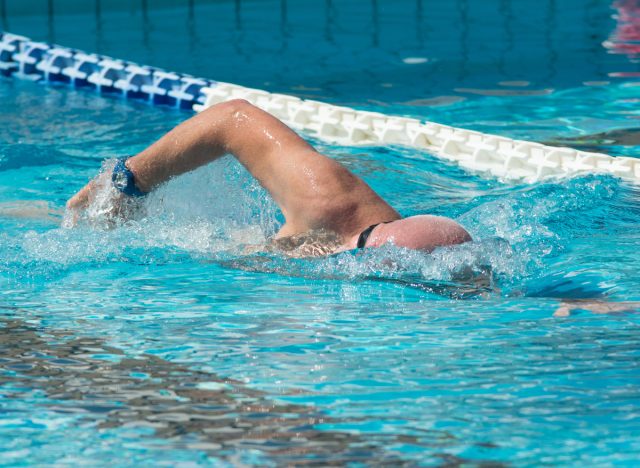

Another secret serves a dual purpose. By performing low-impact aerobic training, you can burn calories and maintain bone mineral density simultaneously, Dr. Bohl says. In doing so, you will protect your spine from losing height as you ahe.
Need some inspiration for low-impact aerobic exercises? Activities such as jogging, walking, swimming, and stationary cycling are all solid choices.
What are some diet tips for a smaller waist at 50?
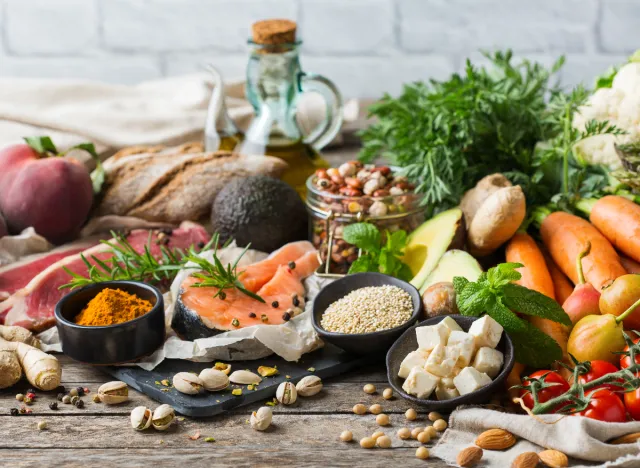

Whenever you’re trying to lose weight, it’s important to stick to a calorie deficit, as the diet part of the equation is key to your success.
Dr. Bohl suggests, “A good idea would be to follow a diet that provides other benefits in addition to a calorie deficit, so you’re helping prevent other diseases as well. One example would be to follow a heart-healthy diet like the Mediterranean diet. Heart-healthy diets are heavy in fruits and vegetables, whole grains, healthy fats (like olive oil, nuts, seeds, and avocados), and lean proteins while avoiding overly processed foods and excess sodium.”
FAQs
Why is a smaller waist important at 50?
As we age, we tend to lose muscle mass and our metabolism slows down. A smaller waist not only enhances our appearance but also signifies a healthy weight and reduced risk of chronic diseases such as diabetes and heart conditions.
What are some common misconceptions about shrinking waistlines at 50?
Myth 1: Crunches are the best way to get a smaller waist.
While core exercises like crunches are beneficial, they should be complemented with a mix of strength training and cardio for overall fat loss and muscle toning. Spot reduction is not effective.
Myth 2: You can’t achieve a smaller waist after menopause.
While hormonal changes can make it challenging, targeted exercises, a healthy diet, and consistency can help women over 50 achieve a smaller waist.
Can diet alone help in achieving a smaller waist at 50?
Diet plays a crucial role in losing weight and reducing waist size. It’s important to focus on a balanced diet rich in lean proteins, fruits, vegetables, and whole grains while limiting processed foods, sugars, and saturated fats. However, exercise is also essential for toning the waist and maintaining overall health.
What types of exercises are best for targeting the waistline at 50?
At 50, a combination of strength training exercises like planks, squats, and lunges with cardiovascular activities like brisk walking, cycling, or swimming can help trim the waistline. Incorporating activities that engage the core muscles and elevate the heart rate is key.






